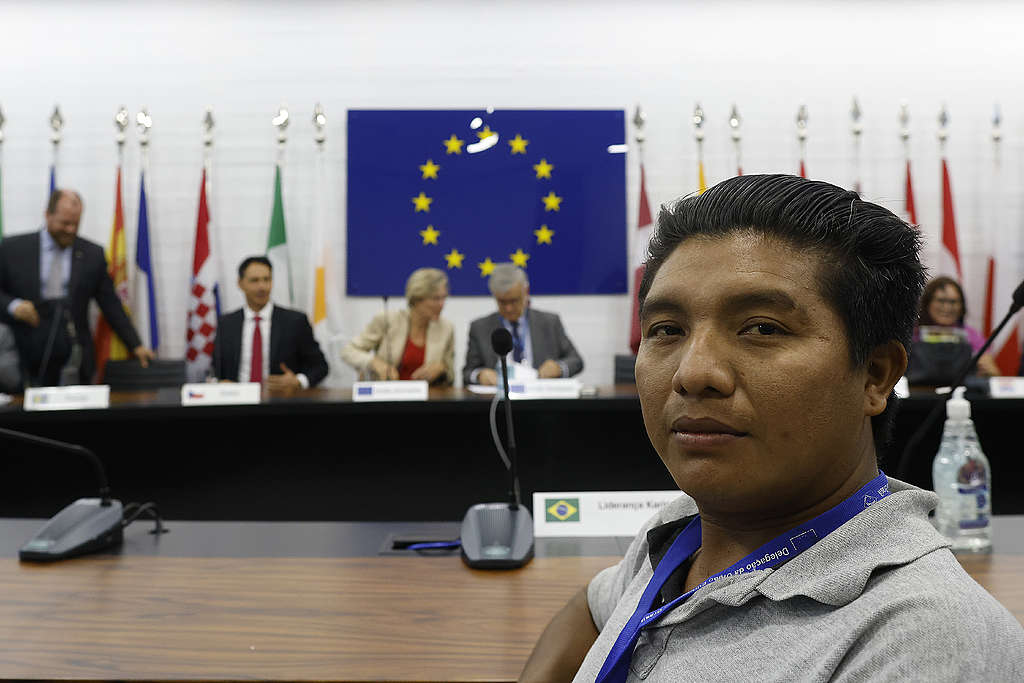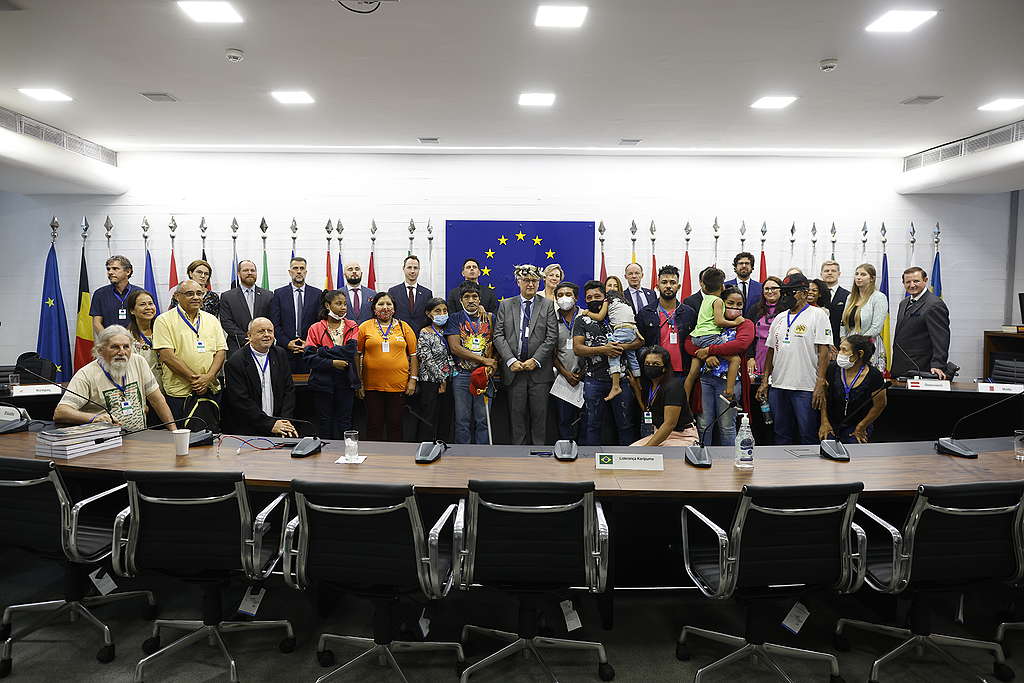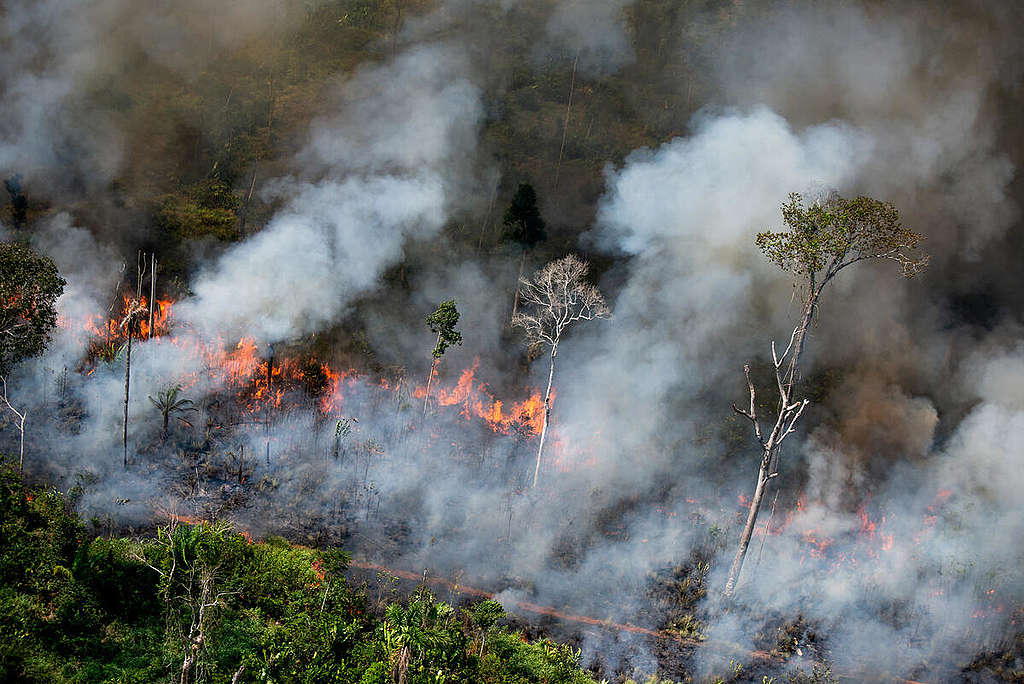The Karipuna People's first interactions with non-Indigenous people took place in the 1970's. At that time, they were almost decimated. Only eight individuals survived. Today, the community consists of 61 people. Demarcated in 1998, their land has an area of 153,000 hectares. But, since then, the Brazilian government has done little to guarantee its protection and the integrity of its borders. As a result, it has been massively invaded by land grabbers and loggers, especially in recent years, under the Bolsonaro government. Data from the National Institute for Space Research (INPE) show that the Karipuna Land was the ninth-most deforested Indigenous land in Brazil between 2015 and 2021 - with 4,700 hectares of forest destroyed.
Because of the rampant threats the Karipuna face, a group of 13 People traveled to Brasília, the capital of Brazil, to meet with ambassadors from eight countries, including Spain, France, Germany and Switzerland, as well as representatives from the European Union embassy and with the United Nations (UN) High Commissioner. The Karipuna leaders handed them a letter, entitled "Cry for Help", and requested that the European Union not buy products that come from Amazon deforestation that violates the rights of Indigenous People.

According to the Chief André Karipuna, his People have been making complaints to various Brazilian agencies for years, but the government is not fulfilling its duty to protect their lands. "That's why we ask you to ask the Brazilian government to take action against land grabbers, loggers and fishermen who invaded our territory. We are living basically at war. We get death threats all the time. These are the people here that you see who are suffering in the territory", said the leader.
André also recalled the responsibility that other countries have in fighting deforestation and supporting the rights of traditional Peoples: "A good part of what leaves Brazil - gold, wood, soy - and arrives in other countries leaves here with Indigenous People's blood stains. So when you make trade agreements with Brazil, with Brazilian companies, ask yourself where that resource comes from. Much of what gets to the table in other countries has blood from Indigenous People from Brazil all over it."

From children to the elderly, the group of Karipuna who traveled was very diverse. The two elders, Katiká and Arypã Karipuna are among the survivors of the first contact that the Karipuna made with non-Indigenous people in the 1970s. "I am worried about the future. We are surrounded by land grabbers and deforesters. The Brazilian state does not fulfill its duty to protect our lands. We became hostages in our own territory." said Katiká Karipuna.
"We can no longer sleep at night, because the impression we have is that we will be pushed out of our territory at any moment. Help us fight invasions - our fish, our nuts, everything is disappearing", said Arypã at the meeting that took place at the Spanish embassy.

Losing the Amazon means losing the home of Indigenous and traditional communities, precious habitats, and the fight against climate change.
These elders barely speak Portuguese, rarely leave their village and are already in poor health, so the fact that they traveled all the way to the capital of Brazil, thousands of kilometres away from their home, shows the degree of the desperation of the Karipuna People. This is a crucial time for them to meet with the European ambassadors. Europe is currently discussing an anti-deforestation law that could have profound impacts on Brazilian forests.This is a chance the Karipuna People have to ask the European Union for strict legislation that does not give up Indigenous rights and ensure that violence against Indigenous People is not normalized.
The protection of the forest is vital to the lives and livelihoods of Indigenous Peoples and to the global climate. Take action to stand with them.






